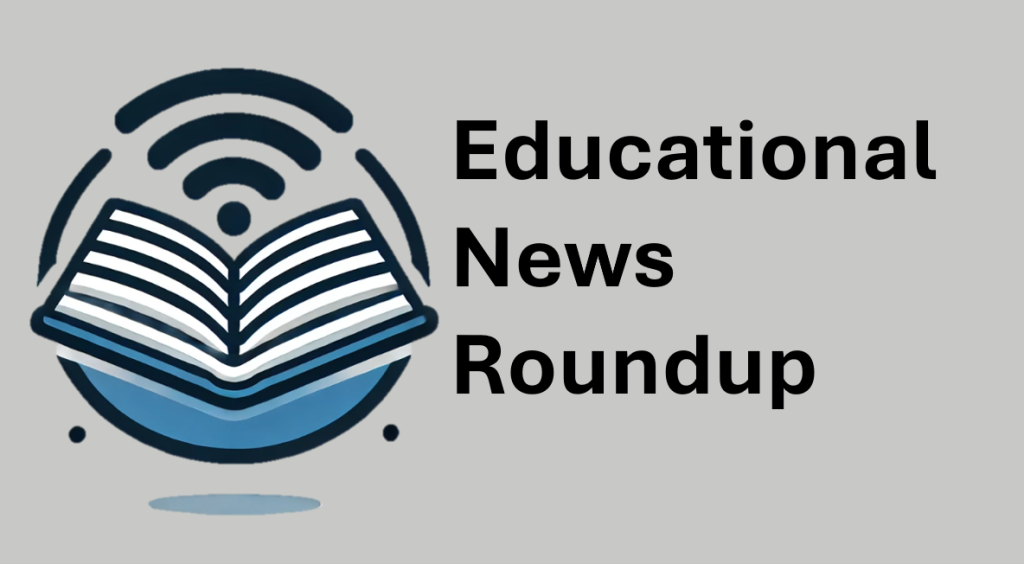
Educational News Round Up, April 24, 2025
Transform Education—Your Support Matters!
Join the movement with This Week in School Psychology—just $5/month or $50/year. We are entirely self-funded; your subscription directly sustains our delivery of groundbreaking insights on education and mental health. Be the expert your community needs in these challenging times. Subscribe now and secure the future of informed education!
School Voucher Research Sparks Controversy
The advancement of a school voucher program in Texas, backed by prominent conservative figures, reignites the debate over the effectiveness of using public funds for private education, with critics pointing to evidence suggesting that such programs may lead to significant declines in student achievement, particularly among disadvantaged populations. The initiative is seen not only as a push for educational choice but also as part of a broader conservative agenda to undermine public sector institutions, including public education and organized labor, with far-reaching implications for the notion of public goods and social equity.
A White School Officer Pepper-Sprayed and Kneed a Black Beaumont Student, Complaint Says. Will Feds Act?
The reduction of investigative capacity at the U.S. Department of Education’s Office for Civil Rights under the Trump administration poses barriers to justice for Ja’Liyah Celestine, a Black student subjected to alleged racial discrimination and excessive force by a school police officer. With the Department’s resources significantly diminished, federal oversight on such civil rights complaints is compromised, leaving affected students to seek alternative legal recourse against discriminatory practices in school districts like Beaumont ISD.
Department of Education announces student loan repayments will continue
The Department of Education will resume collecting defaulted student loan debt starting May 5th, affecting over 5 million Americans and pushing borrowers to take immediate action to avoid wage garnishments and other financial repercussions. Education Secretary Linda McMahon emphasizes accountability and encourages borrowers to explore available resources, including extended support hours and AI assistance, to manage their repayments, while financial expert Derrick Kinney advises setting up income-driven payment plans to mitigate potential penalties.
Former Woodland teachers detail classroom attack and alleged firing, point to “broken” public education system
In this second installment of a CBS Sacramento investigative series, former teachers from the Woodland Joint Unified School District (WJUSD) share alarming accounts of inadequate support and safety in special education classrooms, underscoring a broader national crisis tied to chronic underfunding and staff shortages postulated by lawmakers to require legislative intervention; this, 50 years after the unfulfilled funding promises of the Individuals with Disabilities Education Act (IDEA). These local incidents echo systemic issues, as bipartisan lawmakers reintroduce the IDEA Full Funding Act to address a national $38 billion shortfall, amidst ongoing debates about educational priorities under a Trump administration intent on cutting federal oversight.
Munster parents seek accountability amidst probe into conduct of special education teacher
Parents of students with special needs at Elliott Elementary School in Munster are demanding answers amidst an investigation into a special education teacher accused of abusive conduct, including mocking and isolating students. The situation has led to a teacher’s resignation, the termination of three aides, and criticism of the administration’s handling of the complaints, highlighting concerns about the school’s commitment to student welfare and educator protection.
Police warn teens ‘Senior Assassin,’ aka ‘Paranoia,’ game could be deadly
As high school students partake in games like “Paranoia” or “Senior Assassin,” which involve using realistic-looking toy guns, police and school officials warn that the trend of ambushing others in camouflage and modifying toy weapons can lead to dangerous misunderstandings, potentially resulting in lethal consequences. While some view the game as harmless when played safely, authorities express grave concerns about its escalation into risky behaviors that can trigger emergency responses and put student safety at substantial risk.
Public Education Makes Economic Sense
In his speech, Education Secretary Miguel Cardona warns against the Trump Administration’s efforts to dismantle the Department of Education, arguing that such a move would exacerbate educational inequalities and economic disparities by privileging for-profit interests over public good. Cardona emphasizes the critical role of public education in fostering a skilled workforce necessary for national competitiveness and asserts that undermining federal oversight would not only harm students, particularly those in underserved communities, but also undermine the nation’s long-term economic and social stability.
REINSTATING COMMON SENSE SCHOOL DISCIPLINE POLICIES
The executive order issued by President Trump on April 23, 2025, mandates a rollback of previous policies that linked racial disparities in school discipline to potential violations of Title VI of the Civil Rights Act, arguing that such policies lead to classroom disorder and prioritize racial statistics over individual student behavior. It calls for new guidance to prevent racial discrimination in school discipline, a reassessment of the role of federal funds in promoting equity ideology, and the development of model discipline policies focused on safety and traditional values, potentially impacting how student discipline issues are managed across the U.S. educational system.
Teens, Social Media and Mental Health
The Pew Research Center’s recent study reveals a significant generational divide in perceptions of teen mental health, with parents expressing more concern than teens, particularly regarding the impact of social media, which parents predominantly blame for negatively affecting youth well-being. Additionally, the survey indicates that while teens acknowledge the negative influence of social media on their peers, they perceive less personal impact, and some are attempting to reduce their usage, despite facing various pressures and experiencing both positive and negative effects on their mental health and social dynamics.


